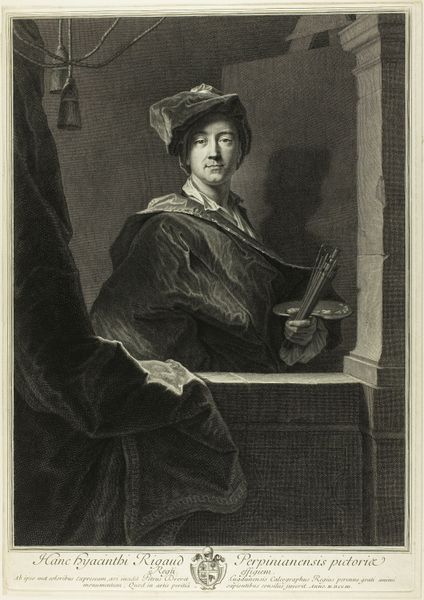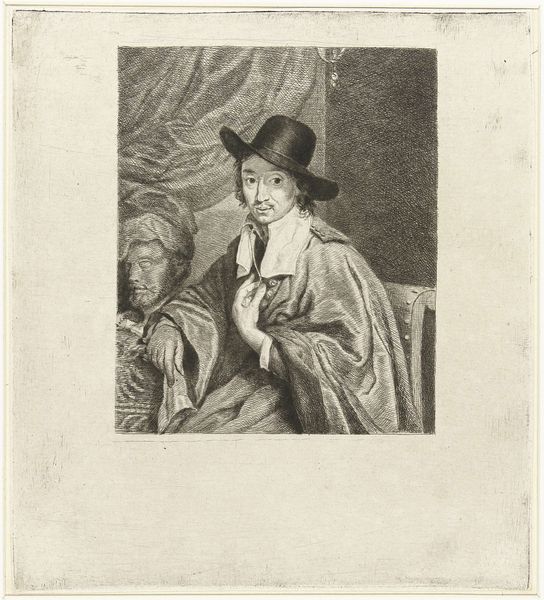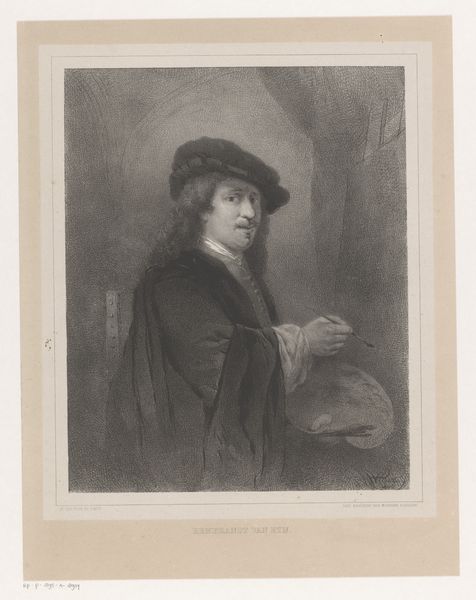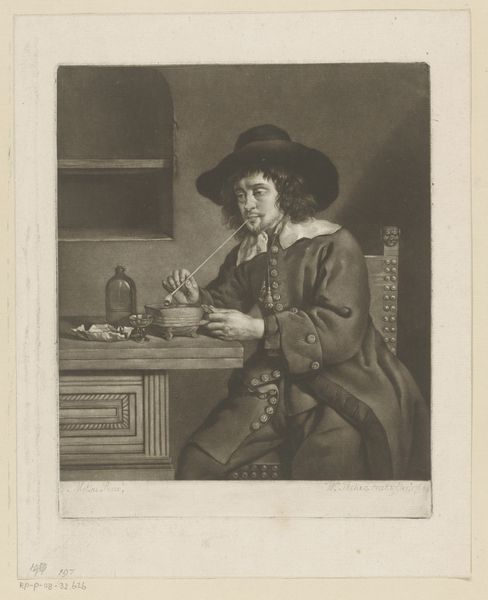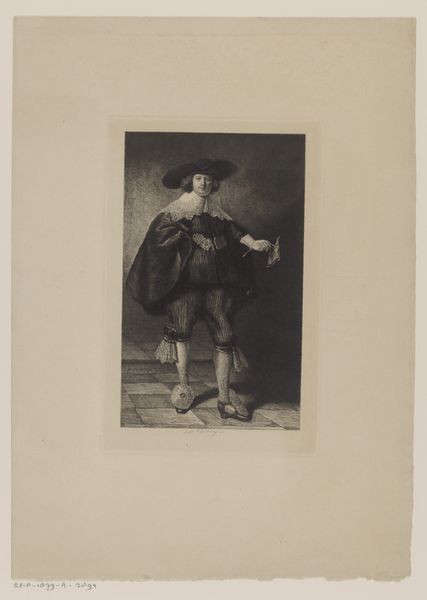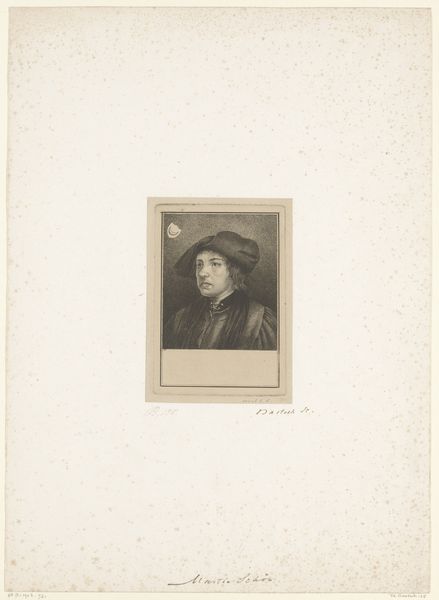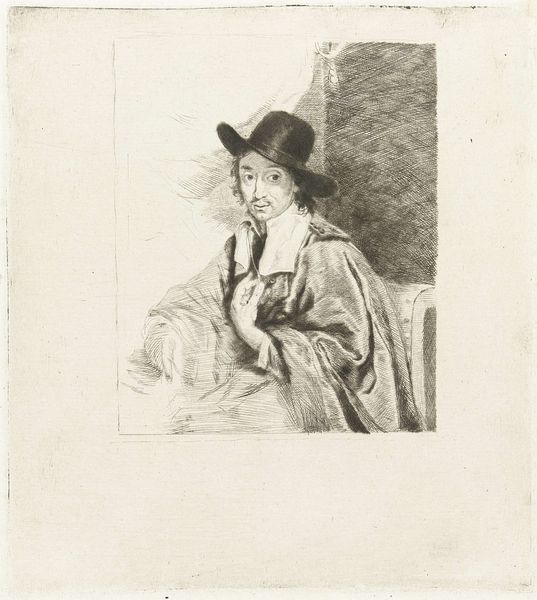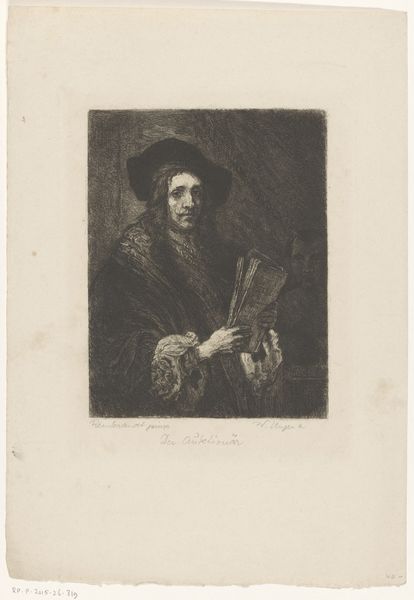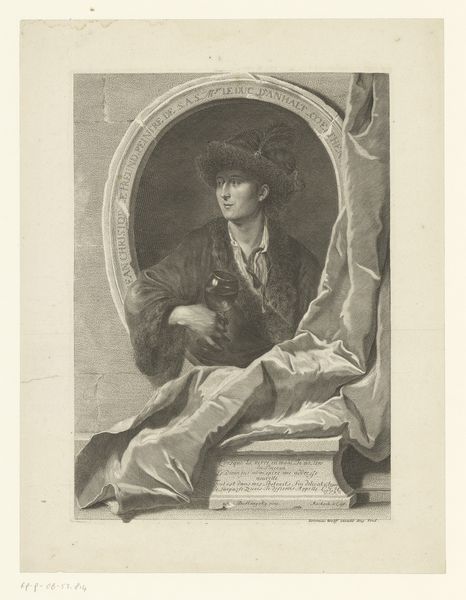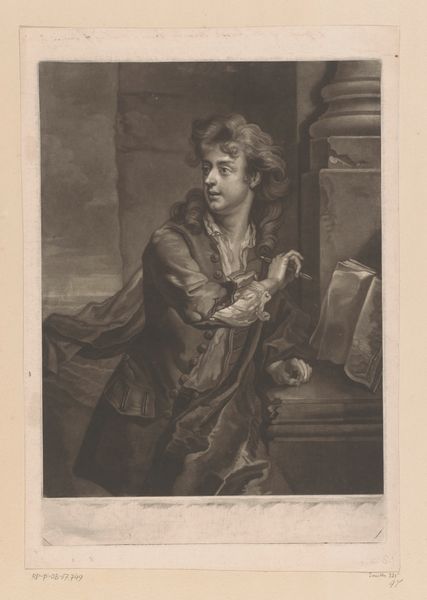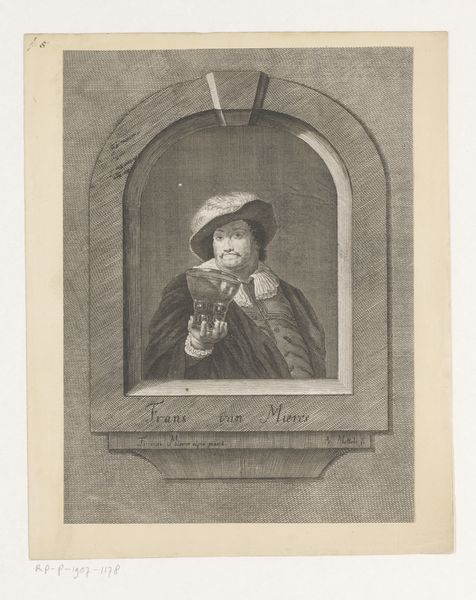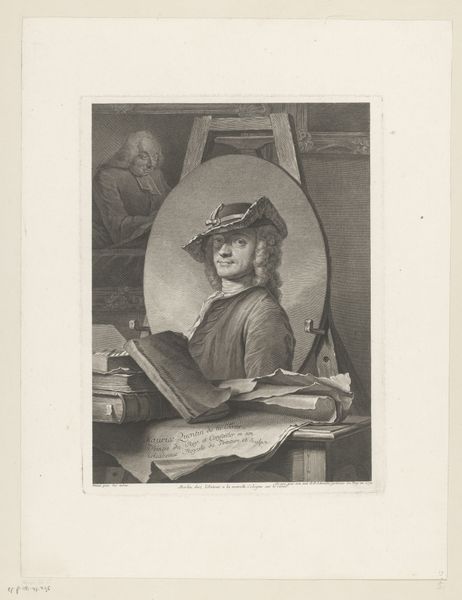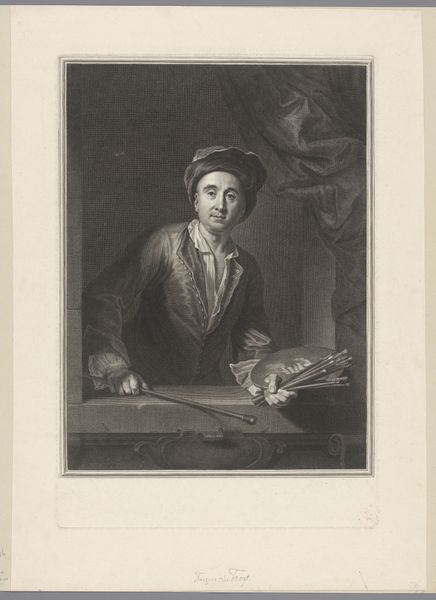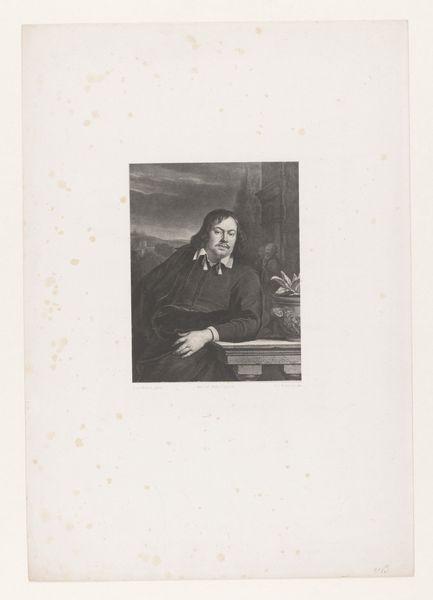
drawing, engraving
#
portrait
#
drawing
#
baroque
#
engraving
Dimensions: height 500 mm, width 352 mm
Copyright: Rijks Museum: Open Domain
This is Pierre Drevet’s engraving of Hyacinthe Rigaud, which likely dates from the early 18th century. The portrait shows Rigaud, a celebrated painter of the French Royal court, holding his tools and palette as if presenting himself as a craftsman and intellectual. This image operates on several levels. Firstly, the composition and the medium of engraving itself reference the printmaking boom in France at the time, largely fuelled by the Royal Academy of Painting and Sculpture. Institutions such as the Academy helped to codify painting styles and promote them through prints like this. Secondly, in France, portraits were a symbol of power, wealth, and status. The wealthy elite would often commission portraits to reinforce their position in society. Studying such prints, along with archival material from institutions like the Royal Academy, helps us understand the social role of art, the ways in which visual imagery can reinforce power structures and the ways in which artists can use visual codes to challenge existing social norms.
Comments
No comments
Be the first to comment and join the conversation on the ultimate creative platform.
